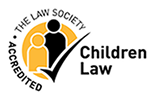When will the court change a child’s living arrangements following the breakdown of a marriage?
The latest Netflix film, Marriage Story, raises a number of issues concerning a child’s primary residence following the immediate breakdown of a relationship.
This article explores the Court’s considerations in England and Wales when a child is already living in one parent’s full-time care following separation, and the non-resident parent wishes to contest the living arrangements.
When a parent applies to switch residence, the Court will consider the welfare checklist (section 1, Children Act 1989) and will only change a child’s living arrangements when it is in the child’s best interest to do so. The Welfare checklist includes the following:
- The ascertainable wishes and feelings of the child concerned (considered in the light of their age and understanding);
- The child’s physical, emotional and educational needs;
- The likely effect on the child of any change in their circumstances;
- The child’s age, sex, background and any characteristics which the court considers relevant;
- Any harm which the child has suffered or is at risk of suffering;
- How capable each of the child’s parents, and any other person in relation to whom the court considers the question to be relevant, is of meeting the child’s needs; and
- The range of powers available to the court under this Act in the proceedings in question.
The Court will be mindful of the likely short-term disruptions to a child if a change occurs, and they will need to be satisfied that the positive long-term benefits outweigh the short-term impact. To assist them they are likely to order an in-depth report called a Section 7 report. This will be completed by either a CAFCASS officer or a member of the child’s local Children Services team. The Author of the report will meet with the parents separately and also, depending on their age and understanding, speak to the child about their wishes and feelings and what they would like to happen (in some cases it may even be appropriate for the child to be joined as a party to the proceedings and separately represented by a Guardian). Having made these enquiries, the Author will complete their report advising the Court on where they believe the child should live and how much time they should spend with the non-resident parent.
If the parties are unable to reach an agreement after receiving the Section 7 report, then the application will proceed to a contested Final Hearing. It is likely that both parents will complete statements and give oral evidence at the Final Hearing. The Court will then make a final decision about where the child shall live after hearing from the parties and any other witnesses, and having considered the Section 7 report recommendation.
If you require help and advice concerning Child Arrangement Orders, and would like to discuss how Hunt & Coombs can help you please contact our Family Law on 01733 882800 or email [email protected].
Subscribe for Updates












